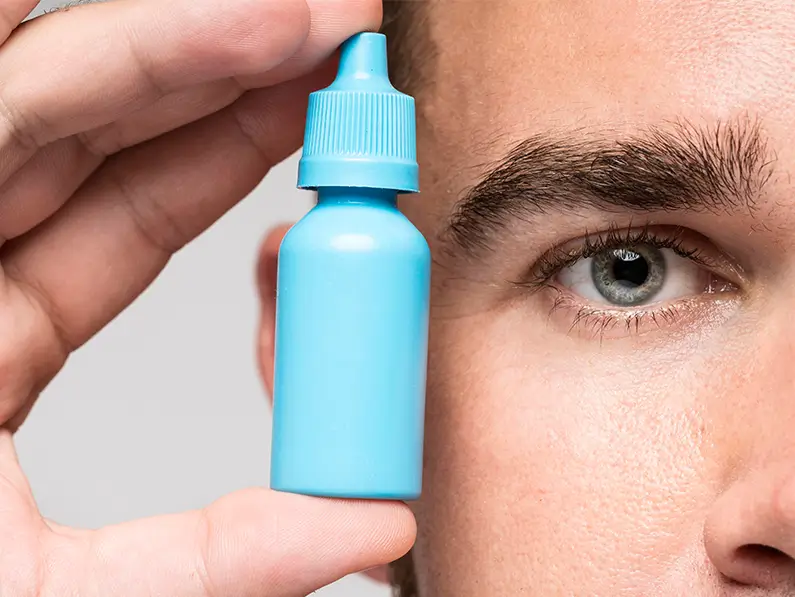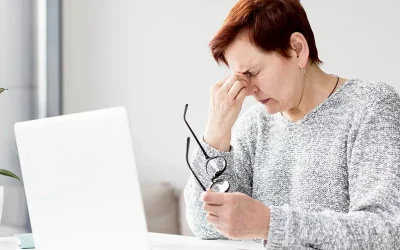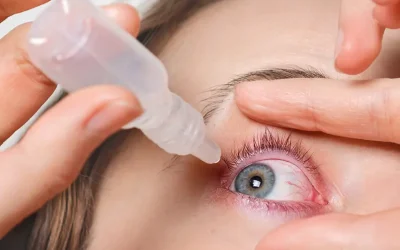Most prescription eye drops have a recommended usage period after opening, typically ranging from 28 to 30 days. However, this can vary depending on the formulation and whether they contain preservatives.
Why Expiration Dates Matter
Expiration dates aren’t just a suggestion—they indicate when the manufacturer guarantees the product’s effectiveness and sterility. Using eye drops beyond this date can lead to bacterial contamination and reduced treatment efficiency.
Factors Affecting the Longevity of Eye Drops
Preservative-Based vs. Preservative-Free Eye Drops
- Preservative-based eye drops: These usually last up to a month after opening, as preservatives help prevent bacteria from growing.
- Preservative-free eye drops: These typically need to be used within 24 hours or come in single-use vials to prevent contamination.
Storage Conditions and Their Impact
Proper storage plays a crucial role in maintaining the effectiveness of eye drops. Factors like:
- Temperature: Store at room temperature unless specified otherwise.
- Light exposure: Keep away from direct sunlight.
- Contamination risks: Always close the bottle tightly and avoid touching the dropper tip to any surface.
Types of Prescription Eye Drops and Their Shelf Life
1. Antibiotic Eye Drops
- Usually effective for 7-14 days after opening.
- Should be discarded after the prescribed course of treatment.
2. Steroid Eye Drops
- Typically last one month after opening.
- Require careful use to avoid contamination.
3. Lubricating Eye Drops
- Varies depending on preservatives; preservative-free drops should be used immediately.
- Preserved artificial tears can last up to three months after opening.
4. Glaucoma Eye Drops
- Most are safe for four weeks after opening but should be replaced regularly to maintain effectiveness.
Risks of Using Expired Eye Drops
Using expired eye drops can lead to:
- Bacterial infections that cause irritation, redness, or serious complications.
- Decreased effectiveness, meaning they no longer provide relief or treat your condition.
- Possible allergic reactions due to chemical breakdowns in the solution.
How to Tell If Your Eye Drops Have Gone Bad?
Signs that your eye drops are no longer safe to use include:
- Changes in color – If the liquid becomes cloudy or discolored.
- Unusual odor – A foul smell indicates bacterial contamination.
- Altered texture – Thickening or separation of ingredients.
Proper Storage Tips to Extend Shelf Life
To maximize the lifespan of your eye drops:
- Store in a cool, dry place away from direct heat.
- Avoid refrigeration unless stated on the label.
- Always tighten the cap securely after each use.
How to Dispose of Expired Eye Drops Properly
Do not flush expired eye drops down the drain. Instead:
- Take them to a pharmacy disposal program.
- Mix with unappealing substances (like coffee grounds) before throwing them in the trash.
Alternatives If Your Eye Drops Expire
If your prescription eye drops expire:
- Consult your doctor for a new prescription.
- Use artificial tears if they were meant for dryness.
- Look for over-the-counter alternatives if safe for your condition.
Conclusion
Prescription eye drops are essential for eye health, but using them beyond their safe period can do more harm than good. Always follow the recommended usage timeline, store them properly, and discard expired drops to avoid risks. When in doubt, consult your doctor to ensure you’re using the best treatment for your eyes.
FAQ: Your questions answered
Can I use eye drops after 30 days of opening?
No, most eye drops should be discarded after 30 days due to contamination risks.
What happens if I use expired eye drops?
You may experience infections, irritation, or reduced effectiveness of the medication.
How do I know if my eye drops are expired?
Check for changes in color, texture, or smell. Also, refer to the printed expiration date.
Can I store eye drops in the fridge?
Only if specified by the manufacturer. Otherwise, room temperature is best.
Why do preservative-free eye drops expire so quickly?
They lack preservatives, making them more prone to bacterial contamination, so they must be used immediately.



